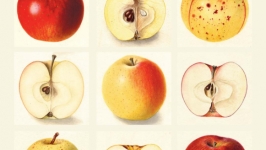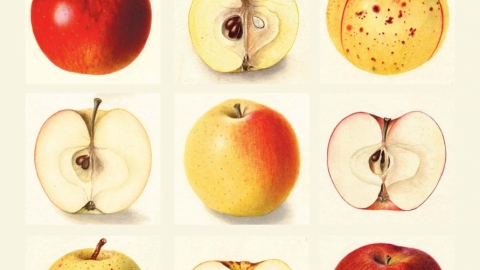Skin Food: What to Eat for a Healthy Glow
It’s a well-known fact that what we eat impacts our health. From vitamins that benefit our bones to minerals that help us get a good night’s sleep, our bodies have many nutritional requirements to keep us healthy and running smoothly. While the focus may often be internal, our diets can also show themselves at surface level— through our skin.
“Skin is the largest organ of our body and serves many functions,” says Cindy Wassef, assistant professor at Rutgers Center for Dermatology in Somerset. “It regulates temperature through our sweat glands and provides a barrier against viruses and bacteria by serving as the first step in our immune response by generating antibodies,” she says, adding that the simplest way one can support skin health us by protecting it from the sun.
“The number one thing that harms our skin is unprotected sun exposure,” she says. “It not only ages us with wrinkles and brown spots, but damages its DNA, leading to potential skin cancers or harming its function as a physical barrier of protection.”
Wassef explains that diet is especially important for the skin for these reasons. “Vitamins and minerals in the foods we eat not only provide the building blocks for the proteins our skin needs, they also deliver antioxidants which can help deter damage caused by the sun,” she says, adding that a diet rich in fruit, vegetables, whole grains, and lean protein is essential.
“Our skin cells are comprised of polyunsaturated fatty acids, which are easily damaged through oxygen and environmental contaminants,” says Deborah Cohen, associate professor with the Department of Clinical and Preventive Nutrition Sciences at Rutgers University in Newark. “While damage such as wrinkles is irreversible, it can be prevented early on by eating a healthy diet.”
Cohen explains that foods rich in antioxidants such as retinol (vitamin A), vitamin E, and vitamin C are especially beneficial for the skin, as are phytochemicals and phytonutrients, all of which help reduce oxidative damage to our cells. ‘Phyto’ means ‘plant,’ which is why incorporating fruits, vegetables, and whole grains into the diet is so important.
A LOW-GLYCEMIC DIET MAY HELP THOSE WHO ARE ACNE PRONE, AS WELL AS THOSE AVOIDING EXCESS DAIRY.
In addition, foods rich in antioxidants and phytochemicals deliver a multitude of skin-promoting properties.
“Flavonoids like beta-carotene, lutein, and lycopene all have anti-oxidant properties and are found in fruits and vegetables like strawberries, blueberries, raspberries, and citrus fruits, as well as foods like onions, scallions, broccoli, soy products, and parsley,” she says, adding that certain teas also contain high amounts of polyphenols—naturally occurring compounds with antioxidant properties that can be found in green, black, white, or oolong tea.
“Consuming foods containing these nutrients can go a long way to help minimize oxidative damage,” she says.
Aside from plants, foods high in omega-3 fatty acids are also great for preventing oxidative damage.
“Fatty fish like mackerel, salmon, and sardines, as well as nuts and seeds like walnuts, chia, and flax seeds can also help reduce UV-induced photo damage,” she says. “A diet rich in these nutrients can also alleviate certain inflammatory skin conditions, so those suffering from dermatitis or psoriasis can benefit as well.”
While a healthy diet feeds a healthy complexion, the jury’s out when it comes to junk food.
“It’s hard to say whether greasy or fatty foods cause acne,” says Cohen. “However, refined sugar may be the culprit.”
Cohen explains that certain foods, especially those with high amounts of refined sugar, can cause a spike in the hormone insulin, which has been linked to increased acne, and that a low-glycemic diet may help those who are acne prone, as well as those avoiding excess dairy.
“Research has found that if you’re prone to acne, a diet low in dairy may be beneficial,” she says. “Milk protein—whey protein, specifically—has been linked to an increase and severity of acne lesions,” she says.
While a diet high in fruits and vegetables is good for our skin, staying hydrated is just as important. Dehydrated skin can appear dull or uneven, so it’s important to drink enough water, as well as to avoid drinking too much alcohol.
“Alcohol can dehydrate the skin,” says Cohen. “However, drinking red wine in moderation can provide some benefit because it contains resveratrol, a polyphenol that’s good for the skin,” she says, adding one can reap the same benefits by eating red grapes.
When it comes to healthy skin, exercise is equally as important as diet. “Exercise pumps blood through our bodies, which helps circulate oxygen and delivers nutrients throughout, leading to more effective cellular repair and replacement,” Cohen says.
So before you buy that fancy face cream or set a date with your dermatologist, start simply by loading up on fresh foods to nourish your body, inside and out.









